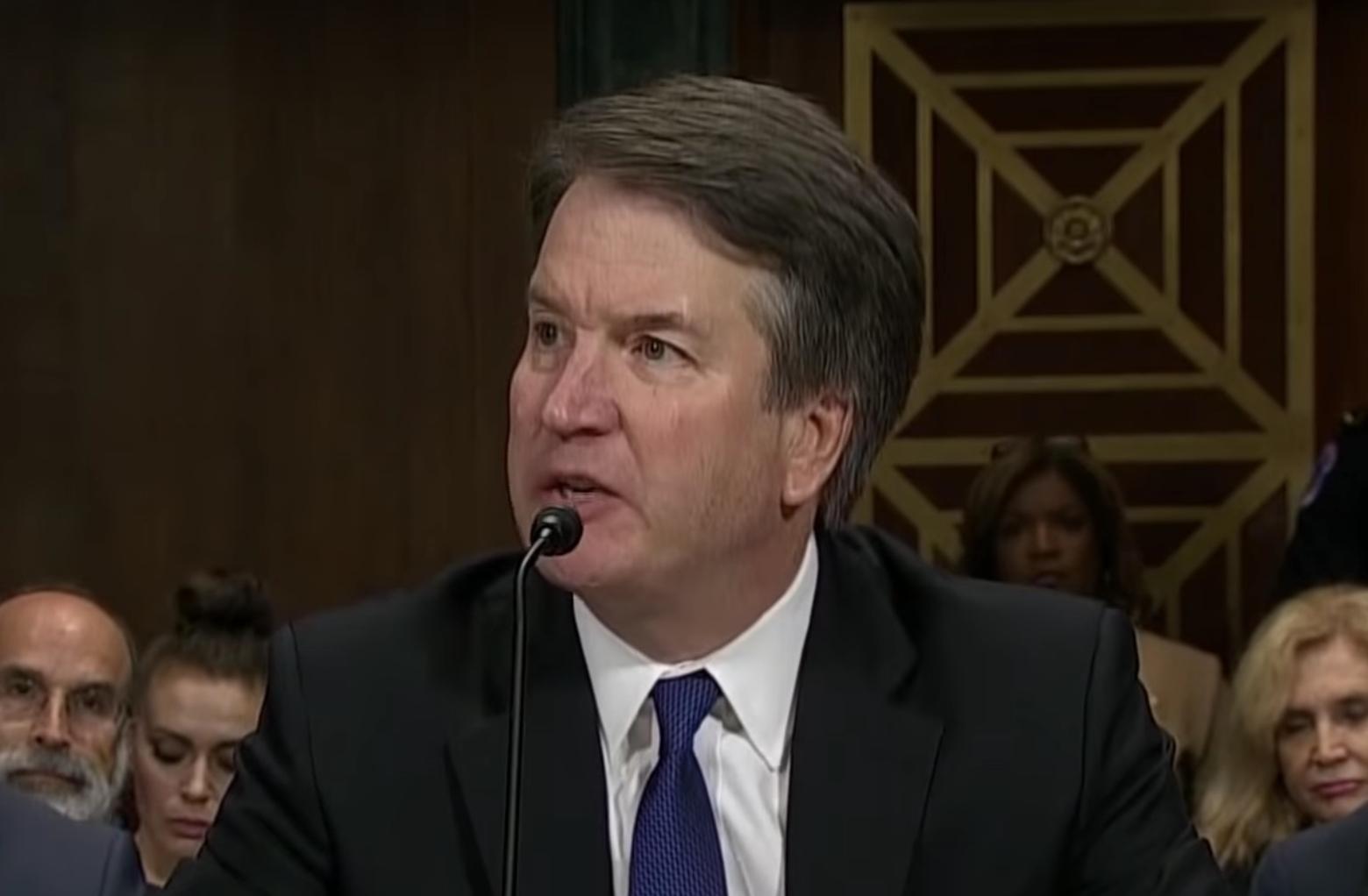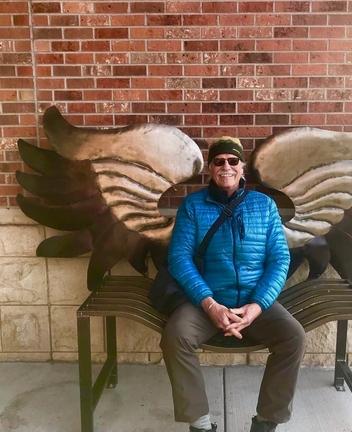Back to StoriesEvery Mountain Town Has Local Versions of Brett Kavanaugh and Christine Blasey Ford
November 4, 2018
Every Mountain Town Has Local Versions of Brett Kavanaugh and Christine Blasey FordWhen we talk of justice, Timothy Tate the psychotherapist wonders about the message sent to American daughters
The votes already have been counted in one “election,” the confirmation made and so the U.S. Senate has cast its lot.
What can we learn, from a mental health perspective, about Brett Kavanaugh’s elevation to the highest court in the land and how does an earnest conversation about victimhood land on Main Street in a western mountain town where you may be reading these words?
In every community, there are the equivalents of Kavanaughs and Christine Blasey Fords. We seldom talk about their travails publicly. We sweep them under the rug. We do it because it makes us and our communities as a whole feel uncomfortable.
Missing as we move on to the next tribal partisan melee is serious reflection on what America lost as a result of the Kavanaugh-Ford spectacle.
It’s worth noting that U.S. Sen. Steve Daines of Montana did not have to vote for Judge Kavanaugh’s confirmation because he was back in Montana walking his daughter down the aisle at her wedding, as any good father would do.
Ms. Blasey Ford is also a daughter of a father. I am a father of a daughter and I think it is worthwhile reflecting, as men, on what signals we are sending to young women.
I’m also pondering what possibly did Blasey Ford have to gain by coming forward after all these years and what did the witnesses, said to have known what really happened in the bedroom between Justice Kavanaugh and the then-teenage girl, have to gain by siding with one version of the truth versus the other?
Think about that for a second. When truth is on the line, what are the mitigating factors that compel people not to defend it?
So much of who we imagine ourselves to be in pursuit of the figurative brass ring—success— doesn’t seem to matter anymore. It’s only the prize that counts and discounting any collateral damage.
Oh we may take exception to the reality of our own insignificance by asserting our will, intelligence, and social graces to further our “brand” as well as convincing those around us of our impeccable values and ethics, be our audience family members, friends, community or beyond.
But at the end of the day each of us, as we say, must look ourselves in the mirror to earn our dignity and self respect. Few of us will get out alive without having such a confrontation and the religious among us know they’ll have to justify their actions to a higher maker.
In my profession, I often see clients wrestling with their conscience, which, according to my dictionary, is that “inner feeling or voice viewed as acting as a guide to the rightness or wrongness of one's behavior.” Conscience is a check against our more base impulses, including the drive to continuously feed our egos.
Creating a personal identity that we can each gracefully inhabit, with our conscience and dignity intact, is no small feat. It takes focus. Abiding our moral and ethical conscience is one of the things that separates us from other members of the animal world.
And yet I would argue the dilemma of doing right is parallel to how a cat watches a suspected mouse hole; not that we are interested in chasing vermin but rather the cat’s entire world at that moment consists of the capacity to bag a mouse. It is identity or as one might say, animal nature to be a predator.
If kitty misses the mouse it may act nonchalant, lick paws, then slink away to nap, as if to say. “I didn’t want that scrawny mouse anyway.” Pursuing the mouse is based on hard-wired instinct, not conscience.
America is now caught in many cat-and-mouse games with the truth, how we collectively define our national psyche and the dignity of who we are and the values we represent as a nation.
I’ve been asked by several people to comment on what I, as a practicing therapist, think about the Supreme Court confirmation antics in Washington DC. They know that over the years I’ve had clients not unlike Blasey Ford, whose way of coping with early traumas can be a lifelong process of recovery.
Ford is a professor of psychology and a research psychologist and these days everyone it seems has their own voyeuristic take on whether she or Kavanaugh lied under oath. One of them did. I am not in a position to make a clinical diagnosis about either of these individuals set on a public stage in a drama worthy of Shakespeare or House of Cards.
This I can say: a sexually-violated girl or woman does not choose to be a victim nor would most choose to have to re-live their trauma on live national television, especially in these dangerous, divisive times.
To those men and women who have risen to the defense of Kavanaugh, driven in part by partisan loyalty, I would ask you to consider the events of the last several weeks from the hypothetical perspective, if you can, of being in Blasey Ford’s shoes. Or being able to imagine if she were your daughter, wife, or mother.
What would you do? Would you, if you believed she had been victimized, encourage her to seek justice or would you encourage her to remain quiet, not cause trouble, based on an assumption that little good can come from it?
Next, consider how such a message might land on the psyche of your loved one?
Rape is a difficult taboo subject and with Bozeman being a college town it’s a topic that lurks just beneath the surface of public discourse on every campus in the country.
I have counseled many women over the years who have tried, as a matter of survival, to repress unsavory and sometimes criminal behavior that was visited upon them in their past against their will.
For some people, there are episodic moments in the course of life when circumstances conspire to generate a trauma so overwhelming as a sense of violation or as a shaming force so compelling that we mentally configure a personal perceptual matrix—a defense mechanism— that becomes our unquestioned personal reality and then forget about its origin.
"I would ask you to consider the events of the last several weeks from the hypothetical perspective, if you can, of being in Blasey Ford’s shoes. Or being able to imagine if she were your daughter, wife, or mother. What would you do? Would you, if you believed she had been victimized, encourage her to seek justice or would you encourage her to remain quiet, not cause trouble, based on an assumption that little good can come from it?"
It is necessary, as a coping mechanism, that a person does not hold such an experience within the realm of automatic recall and meticulous fact-remembering the way we do with events in our lives that are joyful and nurturing.
The loss of innocence, when it involves violence, is the worst kind of all. When we are young we so often crave attention or suspect no evil that we place ourselves in situations that set the stage for predation.
Our personal and cultural naïveté can conspire to mystify our better judgment into believing that what appears as innocent, eager, excited isn’t actually clever, aggressive, and manic behavior.
On many different levels, the confrontation between Kavanaugh and Blasey Ford early in their lives and, most recently, involved the possession and one could argue, imbalance of power.
If we are to first understand and then comprehend how power is exercised between individuals then we must view our current national social gender instability and problems of inequity from an analytical perspective.
Psychotherapists can surmise but poets can also help us gain such a view.
The poet William Stafford writes: “If you don’t know the kind of person I am/and I don’t know the kind of person you are/a pattern that others made may prevail in the world/and following the wrong god home we may miss our star.”
The paradox of the human condition as spied through the lens of introspection, is that those who are disturbed must dominate others whereas those at peace within themselves abide. And sometimes it gets visceral, where hidden or latent forces leap onto a private experience.
Not insignificant is Mr. Kavanaugh’s display of temperament when he invented possible motives for Blasey Ford’s testimony—including a whacky left-wing conspiracy linked to the Clintons—to dismiss his accusor.
One thing that can be said about Blasey Ford is that she was not delusional; she is an otherwise respected professional working in the realm of human psychology.
Even members of Congress, who went to the defense of Kavanaugh, publicly acknowledged that “something traumatic happened to her” yet they deflected when pressed to explain her motivation and the evidence of her earlier having discussed the encounter she had with the new Supreme Court Justice.
What is the nature of the political beast we witnessed during the raw partisan pantomime that played out during the Senate confirmation hearings?
If you are a woman, did the actions of our highest elected officials give you a peace of mind and are you more or less convinced in America’s ability as a country to be empathetic to victims? If you are a man—a father, brother, husband, grandfather or friend of a woman—what message do you think the outcome sent?
As Stafford wrote, “following the wrong god home we may miss our star.” For a nation that Ronald Reagan once described as a "shining city upon a hill,” these times have cast us back into darkness and what’s needed on Capitol Hill is illumination aimed at restoring a societal conscience.





